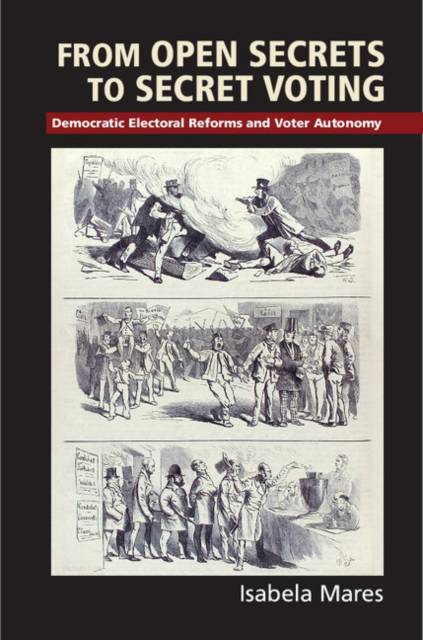
- Afhalen na 1 uur in een winkel met voorraad
- Gratis thuislevering in België vanaf € 30
- Ruim aanbod met 7 miljoen producten
- Afhalen na 1 uur in een winkel met voorraad
- Gratis thuislevering in België vanaf € 30
- Ruim aanbod met 7 miljoen producten
Zoeken
€ 164,45
+ 328 punten
Uitvoering
Omschrijving
The expansion of suffrage and the introduction of elections are momentous political changes that represent only the first steps in the process of democratization. In the absence of institutions that protect the electoral autonomy of voters against a range of actors who seek to influence voting decisions, political rights can be just hollow promises. This book examines the adoption of electoral reforms that protected the autonomy of voters during elections and sought to minimize undue electoral influences over decisions made at the ballot box. Empirically, it focuses on the adoption of reforms protecting electoral secrecy in Imperial Germany during the period between 1870 and 1912. Empirically, the book provides a micro-historical analysis of the democratization of electoral practices, by showing how changes in district level economic and political conditions contributed to the formation of an encompassing political coalition supporting the adoption of electoral reforms.
Specificaties
Betrokkenen
- Auteur(s):
- Uitgeverij:
Inhoud
- Aantal bladzijden:
- 286
- Taal:
- Engels
- Reeks:
Eigenschappen
- Productcode (EAN):
- 9781107100213
- Verschijningsdatum:
- 17/06/2015
- Uitvoering:
- Hardcover
- Formaat:
- Genaaid
- Afmetingen:
- 152 mm x 229 mm
- Gewicht:
- 272 g

Alleen bij Standaard Boekhandel
+ 328 punten op je klantenkaart van Standaard Boekhandel
Beoordelingen
We publiceren alleen reviews die voldoen aan de voorwaarden voor reviews. Bekijk onze voorwaarden voor reviews.











